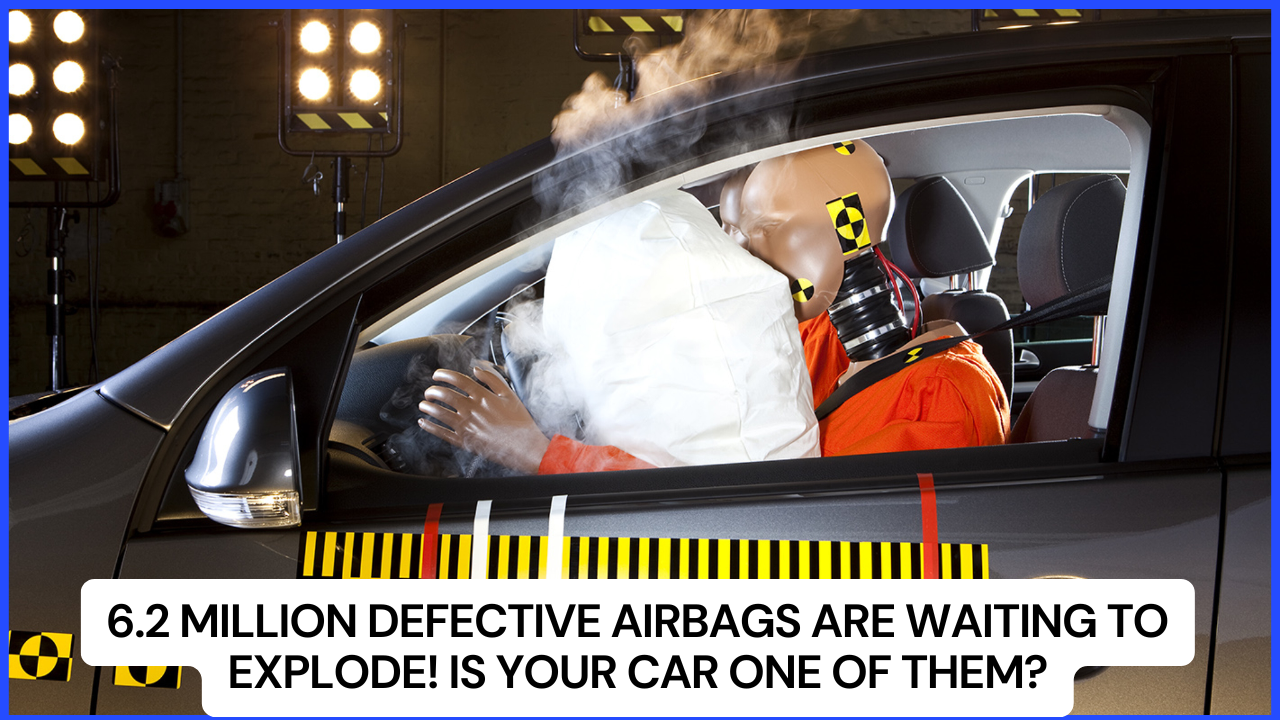The Takata airbag recall remains one of the most significant automotive safety concerns in recent history. With approximately 6.2 million defective airbags still on the streets today, it is crucial to create awareness about this potentially life-threatening issue. While airbags are designed to protect occupants during a crash, defective models can explode upon deployment, sending sharp metal fragments flying at 200 mph throughout the vehicle’s cabin. This alarming defect has already resulted in over 400 injuries and is linked to at least 27 fatalities.
Understanding the Defect
Airbags deploy through a chemical reaction triggered by a propellant. In the case of the Takata airbags, a critical drying agent that should have been included was missing from some models. This omission has led to catastrophic failures, particularly in regions with high heat and humidity, such as Florida, Mississippi, and California. Without the drying agent, these airbags can explode with even greater force, making them significantly more dangerous.
Why Are Certain States More Affected?
Research indicates that 40% of the malfunctioning airbags are located in states characterized by high heat and humidity. The following states are particularly at risk:
- Alabama
- California
- Florida
- Georgia
- Hawaii
- Louisiana
- Mississippi
- South Carolina
- Texas
According to the National Highway Traffic Safety Administration (NHTSA), these regions face a higher likelihood of airbag malfunctions due to environmental factors that exacerbate the chemical instability within the airbags.
The Recall Process
The Takata airbag recall encompasses 19 automakers and involves vehicles manufactured between 2001 and 2015. The recall was initially announced over a decade ago, affecting 67 million airbags. Automakers have been working diligently to address this widespread safety issue. Many have even sent representatives to customers’ homes to ensure they are informed and have the necessary parts for replacements.
Despite these efforts, the recall process has faced challenges. One significant obstacle has been the availability of replacement parts. Given the massive scale of the recall, there has been a shortage of airbag replacements and components, causing delays in the closure of these safety recalls.
Next Steps: Checking for Recalls
To determine if your vehicle is affected by the Takata airbag recall, you can visit Carfax.com/recall and enter your Vehicle Identification Number (VIN). This will provide immediate information regarding whether your vehicle is equipped with a faulty airbag that needs replacement.
If your vehicle is indeed involved in the recall, it’s essential to take action. Visit your local dealership, where they will replace the defective airbag free of charge. The entire process typically takes between 2 to 4 hours, which is a small investment of time considering the life-saving potential of the repair.
The Importance of Awareness
Creating awareness about the Takata airbag recall is not just a matter of information—it’s a life or death situation. Each open recall represents a potential risk, and the urgency to address these issues cannot be overstated. Individuals must check their VINs regularly to ensure they are not driving vehicles equipped with these dangerous airbags.
Manufacturers have been proactive, collaborating with nonprofit organizations and community groups to reach out to affected customers. These efforts aim to close out the remaining recalls effectively, ensuring that every driver and passenger is protected from the risks posed by defective airbags.
Read More-https://sojampublish.org/2024-gmc-canyon-at4x-aev-edition-review-built-for-off-road-dominance/
Conclusion
The Takata airbag recall serves as a critical reminder of the importance of automotive safety and vigilance. As we continue to navigate the complexities of automotive recalls, it is essential for consumers to remain informed and proactive. With millions of defective airbags still in operation, now is the time to take action. Check your VIN today, and ensure that you and your loved ones are safe on the road.
Key Information Table
| Feature | Details |
|---|---|
| Total Defective Airbags | 6.2 million |
| Injuries Reported | At least 400 injuries |
| Fatalities Linked | 27 deaths |
| Affected Model Years | 2001 to 2015 |
| States with High Risk | Alabama, California, Florida, Georgia, Hawaii, Louisiana, Mississippi, South Carolina, Texas |
| Time for Repair | 2 to 4 hours |
| Cost for Repair | Free |
FAQs
- What is the Takata airbag recall?
The Takata airbag recall involves millions of defective airbags that can explode upon deployment, sending metal fragments into the cabin, causing injury or death. - How do I check if my vehicle is affected?
You can check if your vehicle is affected by entering your VIN at Carfax.com/recall. - What should I do if my vehicle is on the recall list?
If your vehicle is affected, visit your local dealership for a free airbag replacement. - How long does the airbag replacement take?
The replacement process typically takes between 2 to 4 hours. - Are there any costs associated with the replacement?
No, the replacement of defective airbags is free of charge. - Why are certain states more affected by this recall?
States with high heat and humidity are more affected due to environmental conditions that exacerbate the airbag’s defects. - How many automakers are involved in the Takata recall?
A total of 19 automakers are involved in the recall of the defective airbags.
For ongoing updates and safety information, visit https://sojampublish.org/.

Blue Techker This was beautiful Admin. Thank you for your reflections.
Smartcric Great information shared.. really enjoyed reading this post thank you author for sharing this post .. appreciated